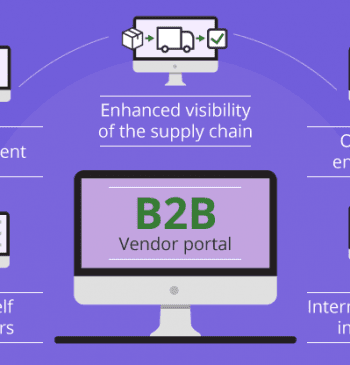23 Dec

A Business Continuity Plan (BCP) is a comprehensive, proactive strategy designed to ensure that a company can continue operating during and after a significant disruptive event. Think of it as a blueprint for survival, outlining procedures and instructions an organization must follow in the face of such disasters as fires, floods, cyber-attacks, or any other potential threat that could interrupt the normal course of business.
The business continuity plan, at its core, includes identifying critical business functions and the resources needed to maintain them. It’s not just about salvaging a company’s IT infrastructure but ensuring key operations such as customer service, supply chain logistics, and other essential functions can continue with minimal downtime.
Common Threats to Business Continuity
For their business continuity plan, companies must be prepared for various disruptions in today’s fast-paced and interconnected world. These threats can be broadly categorized into several key areas:
- Natural Disasters: Earthquakes, floods, hurricanes, and wildfires can cause significant damage to physical infrastructure. The unpredictability and severity of these events can disrupt operations for extended periods.
- Cybersecurity Incidents: With the increasing reliance on digital technologies, businesses are vulnerable to cyber-attacks such as data breaches, ransomware, and phishing scams. These incidents not only disrupt operations but also compromise sensitive information.
- Supply Chain Disruptions: Globalized supply chains, while efficient, are susceptible to various interruptions like political unrest, trade disputes, or pandemics. These disruptions can halt production and affect delivery schedules.
- Human Error and Internal Mismanagement: Mistakes made by employees or poor management decisions can lead to operational failures. This includes everything from data entry errors to strategic blunders.
- Regulatory Changes and Compliance Issues: Changes in laws and regulations can impact business operations. Companies must stay informed and adapt to these changes to avoid penalties and ensure compliance.
Companies must identify these threats and develop comprehensive risk management strategies to ensure business continuity. This involves preparing for the known risks and building resilience to adapt to unforeseen challenges. By doing so, businesses can safeguard their operations, protect their employees and customers, and secure long-term success.
Key Features of Business Continuity Plan
A robust business continuity plan (BCP) is essential for ensuring any organization’s resilience and sustained operation. Here are some key characteristics of an effective BCP:
- A thorough risk assessment is the cornerstone of any BCP. This involves identifying potential threats, from environmental disasters to technology failures, and evaluating their potential impact on business operations.
- It should outline specific, actionable steps to be taken in the event of a disruption. This includes emergency response actions, data backup protocols, and communication strategies to ensure all stakeholders are informed and coordinated.
- The business environment is constantly evolving, and so are the risks. Regular testing and updating of the BCP are crucial to ensure its effectiveness. This might involve simulations, drills, or review processes.
- Employees are often the first line of defense in a crisis. Ensuring they are well-trained and aware of their roles in the BCP can make a significant difference in the plan’s effectiveness.
- Engaging with key stakeholders, including suppliers, customers, and partners, is vital. It considers the continuity needs of these stakeholders and establishes collaborative strategies.
- It should be flexible enough to handle various types of disruptions and scalable to the size and scope of the incident.
By incorporating these characteristics, your business continuity plan can provide a roadmap to navigate unexpected events, minimize disruption, and maintain business operations.
Benefits of Business Continuity Plan
A business continuity plan is essential for businesses to maintain resilience and stability during disruptions. It helps significantly reduce operational downtime, thus maintaining customer trust and financial stability. BCP aids in risk management by identifying and mitigating potential threats before they escalate. This proactive approach enhances a company’s reputation and proves to be cost-effective in the long run.
Compliance with industry regulations is another critical benefit, ensuring legal safety and industry standing. Employee safety and morale are prioritized in a well-crafted BCP, fostering a confident and efficient workforce. Businesses with effective BCPs gain a competitive advantage, especially in recovery speed compared to competitors. It also secures the supply chain, ensuring uninterrupted operations. The process of creating a plan often leads to innovation and operational improvements. Above all, it offers peace of mind to all stakeholders, knowing there is a plan for unforeseen events.
How to Freshening Up the Strategies for Business Continuity
Due to the coronavirus outbreak, there has been a disruption of commerce for B2Cs and B2Bs. This caused a steep surge in demand, new supply chain adversaries, and a change in customer behavior. In addition, some methods exist to sustain business continuity plans in these rough times. This is not only about B2B loyalty but also about providing a safe eCommerce environment for the consumers. This will eventually add to your customer loyalty and can be a permanent aspect of your B2B customer loyalty programs. We have gathered a list of strategies to ensure business continuity for B2Bs. The list is prepared based on data from different areas, the current challenges, and successful best practices.
1. Maintaining the Current Client Base with New Support Measures
New challenges require new measures. During this period, most companies started providing extra support and services to maintain the business-to-business customer experience. If you have not already, you need to find what could help relieve the customer in these rough times in your sector. This will help you maintain your current B2B loyalty level and improve your relationships with your clientele. Some basic strategies could provide free deliveries or extra lowered prices to regions or businesses you know will be most affected. You could also go over your clients one by one and identify the pressing needs of each of them. This is business continuity planning at its best!
2. Re-Invent Your eCommerce Identity
Now that many B2Bs take their work home, the brand’s digital presence is even more important. Businesses need to contact whomever they always contact in whichever method they use. Even if you can no longer offer support in person, you can strengthen your online game to ensure business continuity. This calls for a timely, fitting, valid, and thorough e-commerce site. A site that will be convincing enough to keep your customers as your customers. They will then see no reason to seek service from a competitor. People love the convenience at such times. Why not update your B2B loyalty program in a way that will contain strategies for a business continuity plan?
3. Making It Easier When It Comes to Returns Policies
Understandably, some deeply affected companies revised their purchases. They may also wish to return some goods they already purchased. Your B2B’s financial stability is indeed equally important. However, you must find ways to make your returns policy convenient for your clients. Business continuity plan for B2B mostly means customer satisfaction, and the pandemic has affected everyone. Bearing this in mind, it is your paramount priority to strategize accordingly.
4. Be Smart with Demand-Supply Irregularities
Inevitably, the pandemic has caused disruptions in demand and supply for B2Bs. This might have caused your B2B difficulties in terms of supply and transportation. Besides the physical aspects of this challenge, you need to ensure that your e-commerce is also ready to handle this. As mentioned before, business continuity for B2B entails reliable supplies and customer convenience. Therefore, you must be there for your customers with a sound website that handles traffic and demand. It should also offer convenient options at every step of the purchase. Another smart way to sustain B2B loyalty at this phase is to be transparent if you still need to. Show stock info, real-time prices, and transportation options. These are important factors that affect a purchasing decision. Show that you look out for your customers by being transparent during difficult times. They will surely look out for you later on when it is smooth sailing.
Business continuity for B2B doesn’t have to be a challenge for you. With the smart business continuity planning strategies we listed above, you can maintain and improve your B2B loyalty levels. If you need customized business continuity plans for your B2B, you can always see what Apex Loyalty offers for your brand and industry. Remember that a creative and convenient B2B loyalty program and business continuity plan can make the greatest difference in these rough times.
You can read our previous post on https://www.apexloyalty.com/post-covid-loyalty-concepts/











